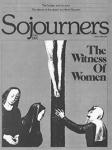The lawmaking debate on draft registration this year has boiled down to a few basic issues, the most provocative of which is will people obey the law? This question has recently led even the former Director of Selective Service (SS), Curtis Tarr (1970-1972), to say, "I foresee the possibility of evasion by large numbers that would overwhelm the agencies for law enforcement and the judiciary. A law that cannot be enforced surely is worse than no law at all."
If all the roughly four million men liable under President Carter's plan sign up, it will indeed be the feat of the century.
The plan is to hurriedly set up special booths at the 39,733 U.S. post offices. Men born in 1960 and 1961 will be ordered to visit one of these offices to fill out special SS forms during business hours in a one-week period for each of the two age groups. The administration wants registration to occur sometime this summer, the very time America's most mobile generation is vacationing. To comply with the law, many youth will have to search out post offices near the beaches and mountains. This is no problem, says SS official Brayton Harris, because the Postal Service will get $5 million to, among other activities, "run trucks into places like Atlantic City and Ocean City" to set up special, temporary post offices on the beaches. SS also plans to spend $400,000 in a media blitz to warn young men to register.
Officials say they don't expect non-registration to be a problem, but their comments raise suspicions. In January, just days before Carter made his registration decision, SS Director Bernard Rostker wrote that "registration will provide a list over 90 per cent complete...," In April, he said the list would be 98 per cent complete. Then in May, another SS official, Joseph Foley, dismissed the problem of enforcement by saying, "We in the past have had 99 per cent plus compliance within that age group," and, inexplicably, that at times it was "above 100 per cent." When queried in June on the changing numbers, Rostker defensively said, "It's a guess. Do you have better numbers?"
Critics say a seemingly intractable, nationwide non-interest in federal government affairs will cause many to simply be ignorant of the law's demand. During summertime, many youth will be away from the advice of parents or the regimens of school that may otherwise have informed or reminded them of their legal duty. These and other factors will likely add a whole new group of non-registrants to the ranks of those who willfully do not register because of conscience.
Former Director Tarr estimates that as many as 10 per cent will not register. Others estimate the figure to be nearer 40 per cent. These percentages translate into significant numbers. One per cent non-compliance would mean roughly 40,000 young men nationwide. 10 percent would equal 400,000. And 40 percent would be 1.6 million lawbreakers. Figures like these cannot be taken lightly. By law, failing to register is a federal felony, with the penalty fixed at a maximum of five years in jail or a fine of up to $10,000, or both. While there are separate efforts under way to legislatively reduce these penalties for peacetime offenses, few expect them to be passed this year, if ever.
In a similar registration-without-a-draft situation during 1973 and 1974, "approximately 10 per cent of all eligible males" (more than 420,000 men) did not register, according to Rev. Barry Lynn, chairperson of the Committee Against Registration and the Draft who analyzed SS statistics.
Selective Service officials try to duck all questions about the agency's plans for dealing with future non-registrants. But under pressure, Director Rostker has conceded that SS "will develop a program for identifying non-registrants." The non-cooperator must realize that he "makes himself liable for severe penalty," said Rostker.
No more details on this "program" are available, however. This dearth of information frustrates attempts by some members of Congress who, as Representative Bob Kastenmeier put it, are trying to "anticipate the results of laws" they make. "Are we in danger of creating a whole new class of criminals?" asked Kastenmeier to no avail, citing the fact that uniform prosecution of even a one per cent non-registration rate would double the current annual criminal caseload of the federal courts. If just one-half of these were convicted and imprisoned, their numbers would double the federal prison population.
Selective Service has only one practical option available to track down non-registrants--to cross reference names with Social Security and IRS files, an action made illegal by the Privacy Act of 1974. Rostker has said publicly that the administration may well ask Congress to suspend this law if necessary to enforce registration.
Court suits challenging the constitutionality of a males-only draft registration may delay or overturn the law. In any event, the early public statements by many youth that they will not register had a measurable effect on the lawmakers' decisions. This stance seemed to make practical politics more cautious and troubled than usual.
One exchange in a congressional hearing bears this out. Representative Kastenmeier was pressing SS Director Rostker on why the agency had not surveyed youth to find out how many could not conscientiously participate in a military roll call to threaten the Russians. Rostker replied that "the answers that you would get will likely be political statements and not the ones they would give when faced with the problem." We must ask these youth, blustered Rostker, "what are you protesting" by your non-registration? "In our view, it is increased military readiness."
Phil M. Shenk was on the editorial staff at Sojourners when this article appeared.

Got something to say about what you're reading? We value your feedback!
